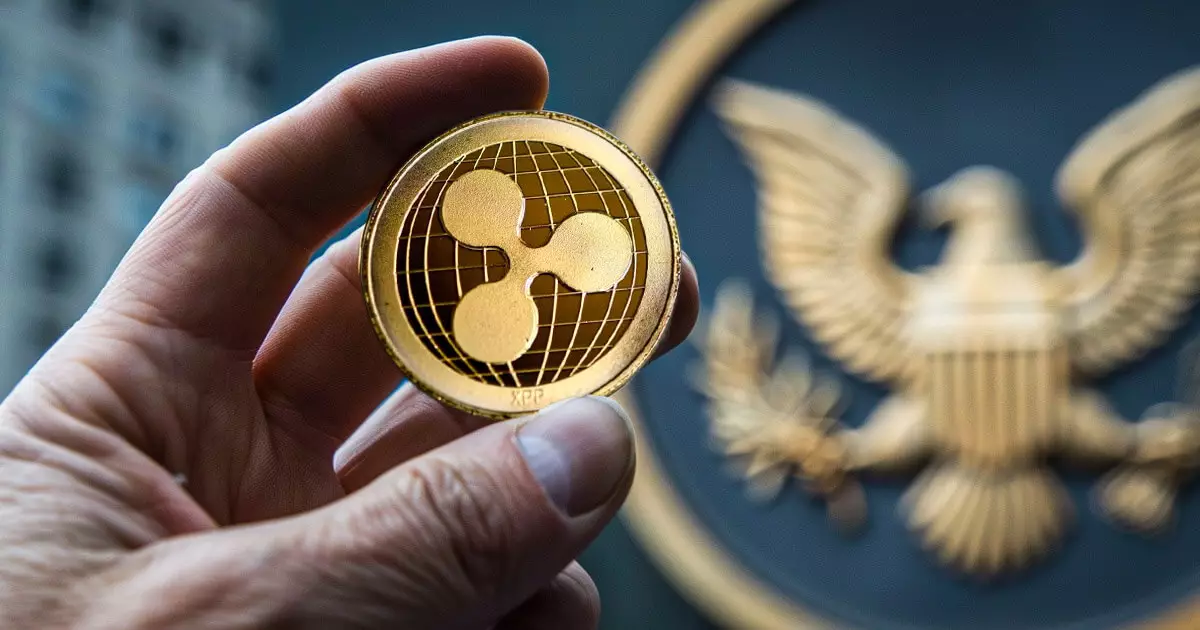The ongoing legal conflict between Ripple Labs and the U.S. Securities and Exchange Commission (SEC) is set to escalate further as both parties seek appeals regarding the interpretation of securities laws. This case not only involves significant financial implications for Ripple but also holds potential repercussions for the broader cryptocurrency market, making it a focal point of intrigue and concern in the fintech community.
Ripple Labs found itself embroiled in legal trouble when the SEC accused the company in December 2020 of conducting an unregistered securities offering that raised approximately $1.3 billion through its XRP tokens. This landmark case has sparked intense debates and legal scrutiny, particularly around what constitutes a security in the realm of cryptocurrencies. Ripple’s legal team initially pushed back against these allegations, laying the groundwork for a prolonged legal dispute that has since caught the attention of regulators, investors, and cryptocurrency advocates alike.
In a noteworthy development in July 2023, Judge Analisa Torres of the U.S. District Court for the Southern District of New York delivered a mixed verdict. While she ruled that Ripple’s institutional sales of XRP did indeed violate securities laws, she also concluded that programmatic sales to retail investors did not amount to securities offerings. This ruling provided a significant sense of relief for Ripple, as it could have implied major restrictions on how cryptocurrencies could be marketed and sold in the future.
However, the impending financial repercussions of this legal battle were far from over. Although the SEC initially sought nearly $2 billion in penalties, the court ultimately mandated Ripple to pay a substantially lower fine of $125 million. Ripple, in its appeal, is now contesting this financial judgment, along with the original accusations concerning institutional sales. This distinction is pivotal, as it could affect not just Ripple’s operations but also establish a critical precedent regarding the regulation of digital currencies moving forward.
Ripple’s leadership has been vocally critical of the SEC’s regulatory approach. Chief Legal Officer Stuart Alderoty expressed that the cross-appeal was a necessary step to ensure all possible avenues of defense are explored. He indicated that the SEC might expand its argument to include other XRP-related activities such as sales on exchanges, suggesting a potential broadening of the legal contention. This perspective accentuates a fundamental issue among cryptocurrency stakeholders: the need for regulatory clarity. Alderoty’s assertions reflect a broader sentiment within the industry that the SEC’s stance is not only punitive but also obstructive to innovation.
Similarly, Ripple CEO Brad Garlinghouse has characterized the SEC’s actions as an attempt to create chaos within the cryptocurrency landscape, implying that their enforcement-centric philosophy is damaging to both consumers and creators. His comments highlight a growing frustration among industry leaders against seemingly ambiguous regulatory frameworks that could hinder business operations and discourage investment.
As the SEC’s appeal and Ripple’s cross-appeal are merged into a singular case, the crypto industry waits with bated breath. The outcome could set precedents that influence how digital currencies will be classified in the U.S., which is particularly crucial given the exponential growth of the sector in recent years. Each ruling may either reinforce existing legal ambiguities or contribute to a clearer regulatory framework. Ripple’s situation embodies the tensions between fostering technological innovation and ensuring consumer protections in a swiftly evolving marketplace.
The implications of this case extend beyond Ripple, affecting cryptocurrency investors, developers, and other market players who seek clarity amidst a patchwork of regulatory standards. Should Ripple succeed in its appeal, it may pave the way for a more blended approach to cryptocurrency regulations, one that acknowledges the unique characteristics of digital assets and their functional distinctions from traditional securities.
As Ripple Labs and the SEC prepare for what will likely be a protracted legal battle, the eyes of the cryptocurrency community remain fixated on the unfolding developments. The outcomes of these appeals could significantly shape the regulatory landscape, influencing not only Ripple’s fate but that of the entire industry for years to come.

